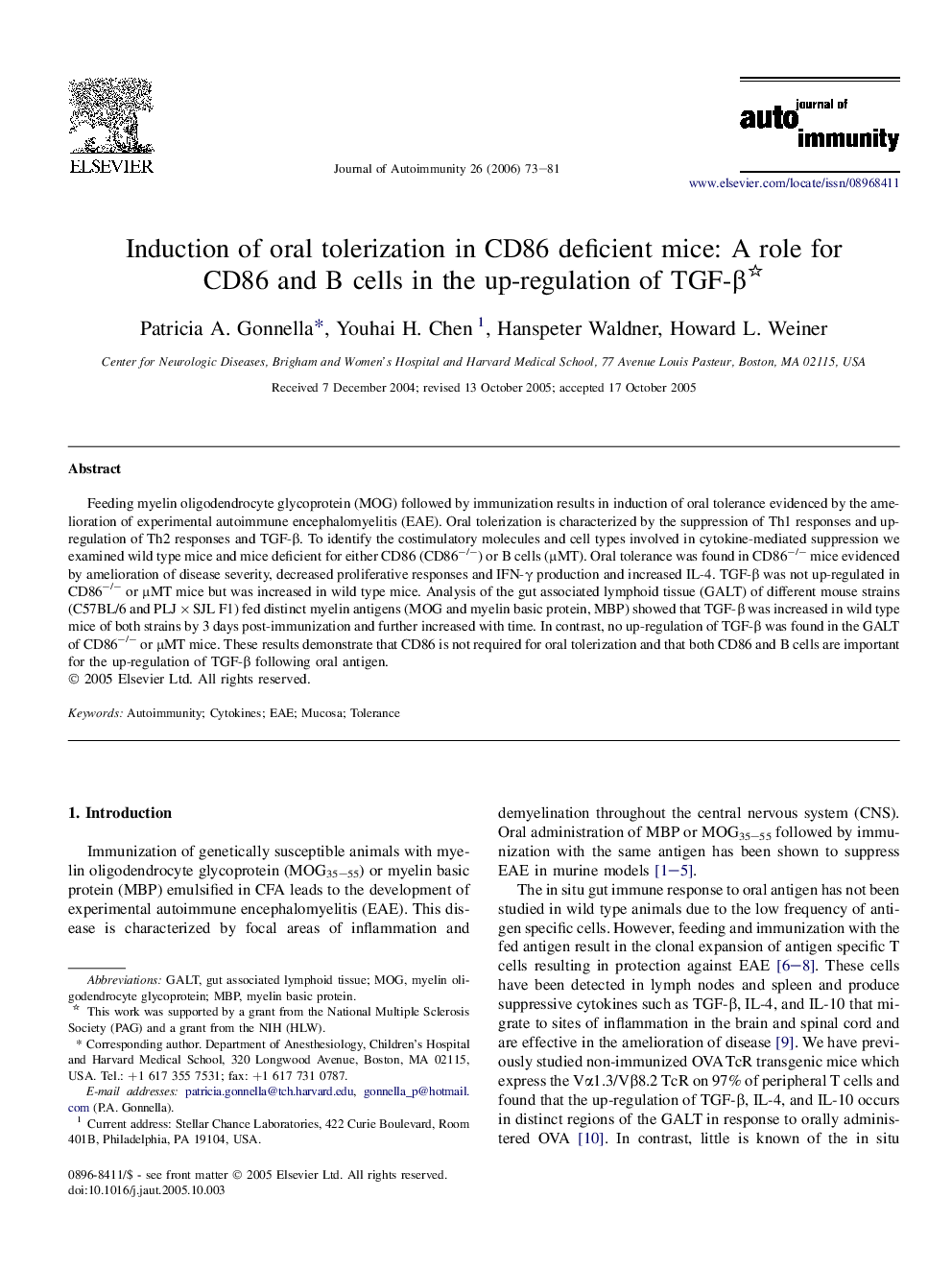| Article ID | Journal | Published Year | Pages | File Type |
|---|---|---|---|---|
| 3368589 | Journal of Autoimmunity | 2006 | 9 Pages |
Abstract
Feeding myelin oligodendrocyte glycoprotein (MOG) followed by immunization results in induction of oral tolerance evidenced by the amelioration of experimental autoimmune encephalomyelitis (EAE). Oral tolerization is characterized by the suppression of Th1 responses and up-regulation of Th2 responses and TGF-β. To identify the costimulatory molecules and cell types involved in cytokine-mediated suppression we examined wild type mice and mice deficient for either CD86 (CD86â/â) or B cells (μMT). Oral tolerance was found in CD86â/â mice evidenced by amelioration of disease severity, decreased proliferative responses and IFN-γ production and increased IL-4. TGF-β was not up-regulated in CD86â/â or μMT mice but was increased in wild type mice. Analysis of the gut associated lymphoid tissue (GALT) of different mouse strains (C57BL/6 and PLJ Ã SJL F1) fed distinct myelin antigens (MOG and myelin basic protein, MBP) showed that TGF-β was increased in wild type mice of both strains by 3 days post-immunization and further increased with time. In contrast, no up-regulation of TGF-β was found in the GALT of CD86â/â or μMT mice. These results demonstrate that CD86 is not required for oral tolerization and that both CD86 and B cells are important for the up-regulation of TGF-β following oral antigen.
Keywords
Related Topics
Life Sciences
Immunology and Microbiology
Immunology
Authors
Patricia A. Gonnella, Youhai H. Chen, Hanspeter Waldner, Howard L. Weiner,
